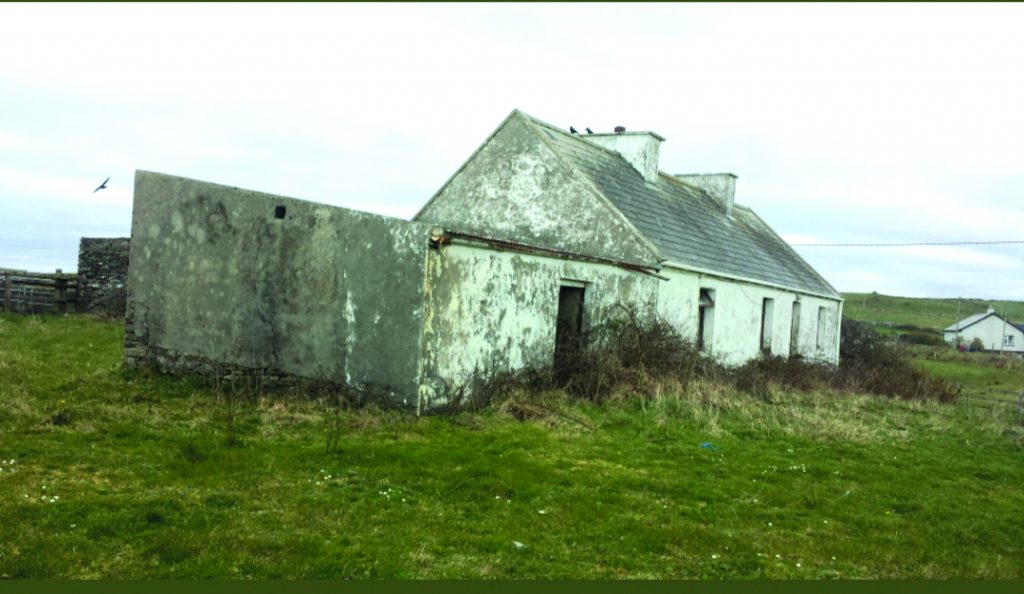What grants are available if you’re eco building in Ireland? We round up what you can get in both NI and ROI.
In this article we cover:
- Grants for new builds
- Grants for existing homes
- Other types of grants
- Other supports
When it comes to investing in eco build methods, you’ll want to weigh how much the features will cost versus what you’ll gain, mostly in energy savings. Eco features usually refer to insulation measures to make your home energy efficient, through the fabric first approach.
For a new build, you will need to prove compliance to the building regulations and this requires professional input. The process of deciding how much insulation to put in, how many windows and where, and whether or not you want to invest in renewables, will all be factored in at this early stage. Calculations are done through vetted software – DEAP in ROI, SAP in NI.
In existing homes, you’ll need to go through a similar process. A technical assessment is in fact required to avail of the SEAI grants in ROI (see next page).
Grants for new builds
The building regulations already have eco features, such as a renewable component, so in NI and ROI there are very few grants available for new builds.
In ROI the main grant support is the electric vehicle (EV) charger grant. Then there are general supports in the form of the Help to Buy scheme (tax back for first time self-builders) and the low interest First Home Scheme which is now open to self-builders.
Also note that in ROI until April 2024 self-builders are exempt from paying local authority charges and water connection fees. And there is a serviced site scheme (Croí Cónaithe (Towns) Fund – Ready to Build Scheme) whereby the local authority will sell you a site that’s got all services ready to connect to; contact your local authority for more.
In NI there are even less supports but there is no VAT on new builds, which effectively discounts the cost of your build by the VAT amounts. You claim back your VAT at the end of the project.

Eco building grants for existing homes
According to recent studies, renovating an existing building is the most eco-friendly of projects because it’s not as resource intensive as building new. And it’s bringing an unused building back to use.
Vacant property grants
In ROI you can get €50k for a vacant property or €70k for a derelict property to do it up – you can already own the property or be in the process of buying it. And it can be a renovate-to-rent project; you don’t have to live in it.
The Repair & Leasing scheme will give you a loan to repair a home you own that has not been lived in for at least a year – up to €40k (or €50k for what was previously a bedsit) – with a view of renting it out for social housing purposes.
SEAI grants
On existing homes, individual grants amounts are available for insulation (detached house €1.5k to €1.7k for attic or cavity wall, dry lining €4.5k, external wall insulation €8k), heat pumps (€6.5k), solar panels (PV up to €2.4k and thermal €1.2k), and heating controls (€700).
A contribution towards your Building Energy Rating (€50) and technical assessment (€200) in the context of the work is also available. Grants are available for homes pre-2011 for insulation and heating controls and pre-2021 for heat pumps and renewable systems.

Deep retrofit grants are also available which cover windows/ doors and ventilation systems as well, but you will need to carry out extensive works. The SEAI’s example for a detached house shows homeowners spending €64.5k to do the work with a €24.1k grant meaning they were out of pocket €40.4k.
There are also fully funded energy upgrades for households receiving government supports such as fuel allowance. See seai.ie for all three schemes.
Traditional buildings grants
In ROI the Traditional Farm Buildings Grant goes towards the conservation and repair of traditional farm buildings and related structures for farmers in the Green Low-Carbon Agri-Environment Scheme (GLAS). Maximum grant amount is €30k; up to 75 per cent of the cost can be financed subject to the maximum grant amount.
A thatching grant is available towards the cost of renovating thatched roofs of owner occupied houses. A grant of two thirds of the approved cost up to a maximum of €3,810 is available.
For heritage buildings in need of considerable repair there are grants available but these can be hard to get; contact your local authority for more information. A tax relief may be available too (Section 482).
In NI, Housing Executive grants are available for houses in need of repair, but these tend to be very hard to get. Check out the Ulster Architectural Heritage website for an overview of the grants you could apply for.

Other grants
There are means tested grants available to upgrade your home for someone with a disability in ROI, up to €30k or 95 per cent of the cost whichever is lower.
Fully funded grants, or up to €5k whichever is lower, are also available to replace old lead pipes. There’s also a grant of up to €5k to replace your septic tank or 85 per cent of the cost, after failing an inspection or if you’re in a high risk area, among other criteria.
In NI, for those with mobility issues there’s the Disabled Facilities Grant and the Home Repairs Assistance Grant. Bryson Energy in partnership with Belfast City Council also runs a free handyman service for the elderly.
In both jurisdictions check for offers from utilities; in NI for example low income households can avail of the Utility Regulator’s Sustainable Energy Programme.
Disclaimer: This list is not exhaustive, always consult with a qualified building professional. Schemes are subject to change







